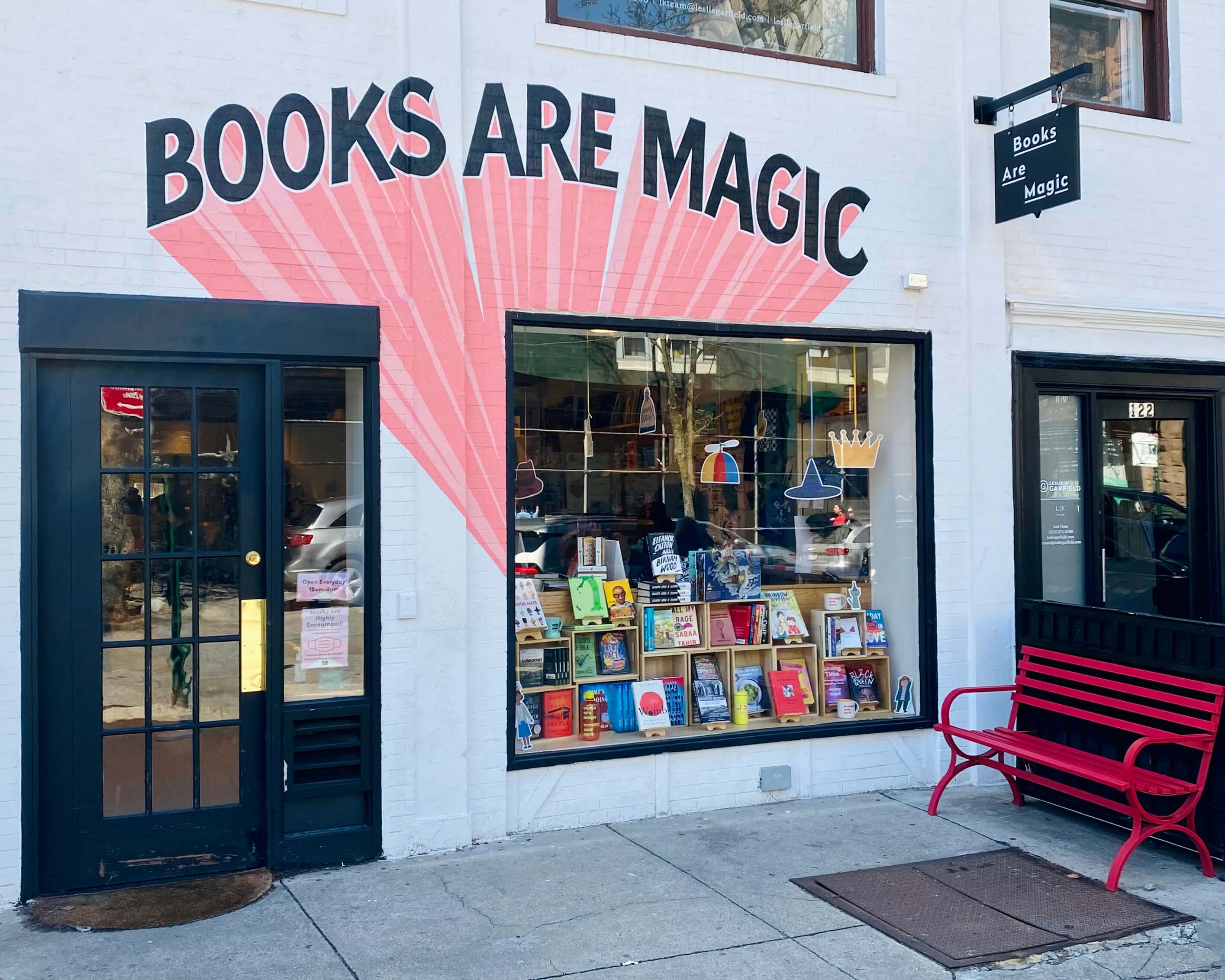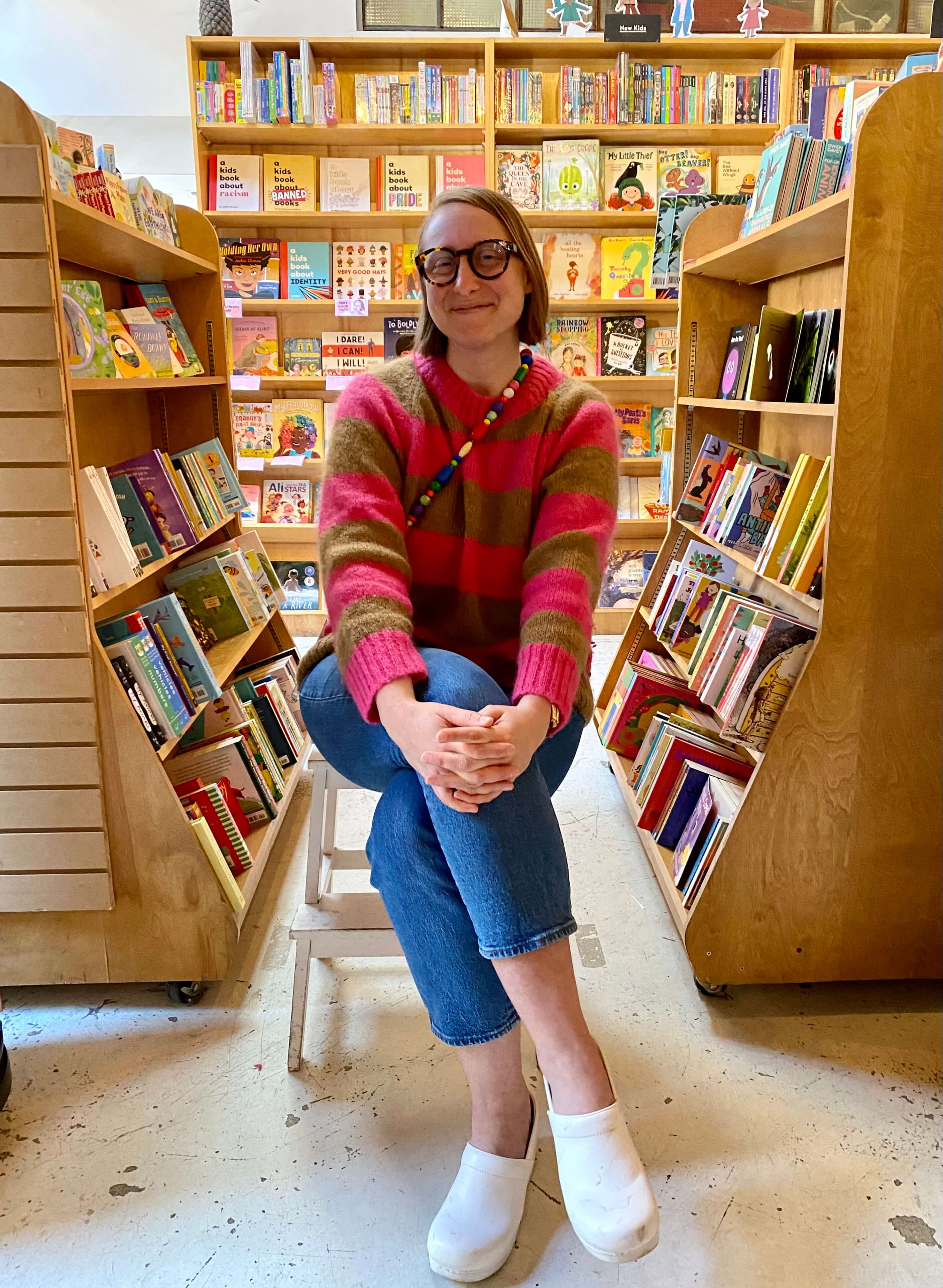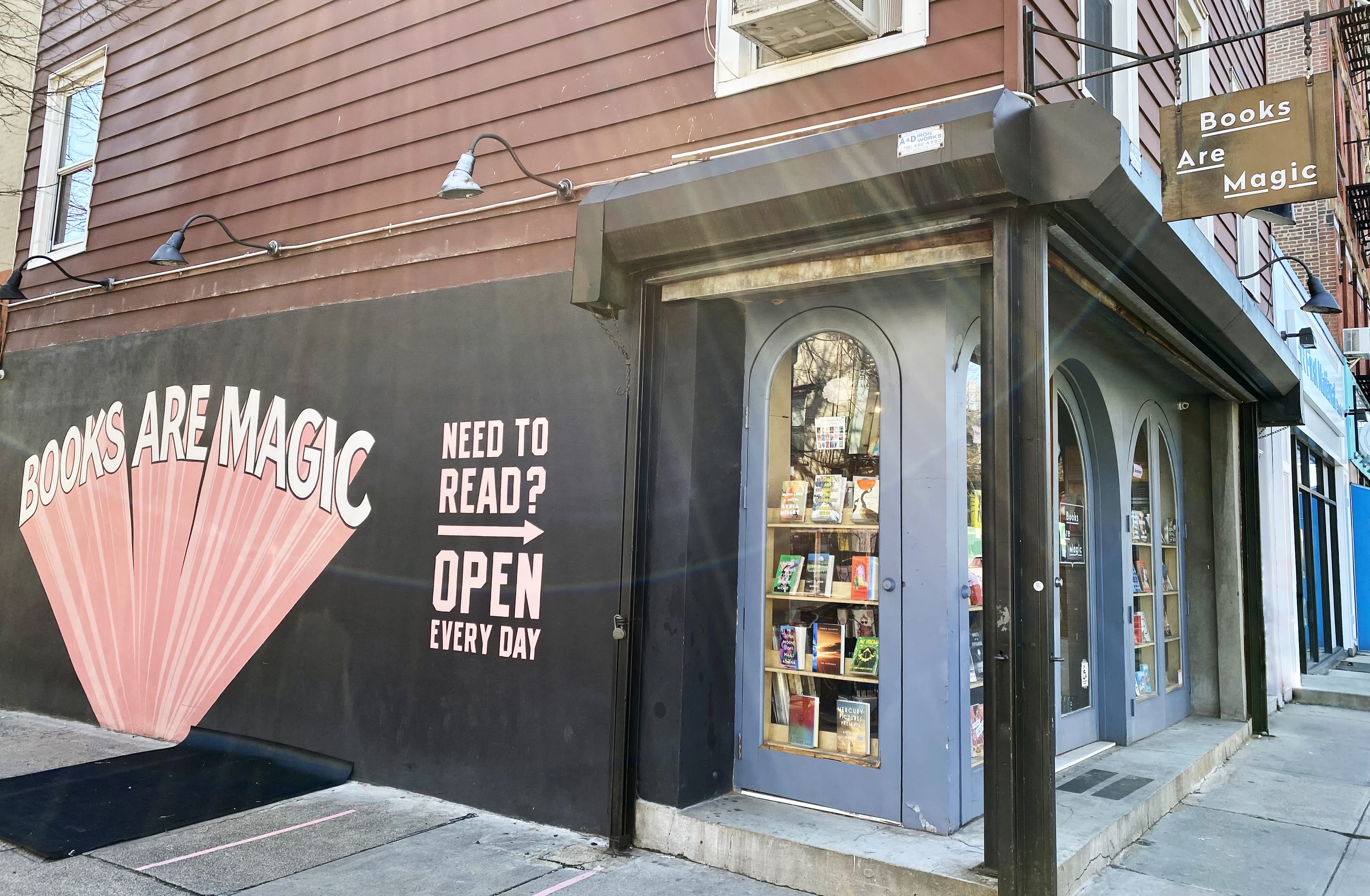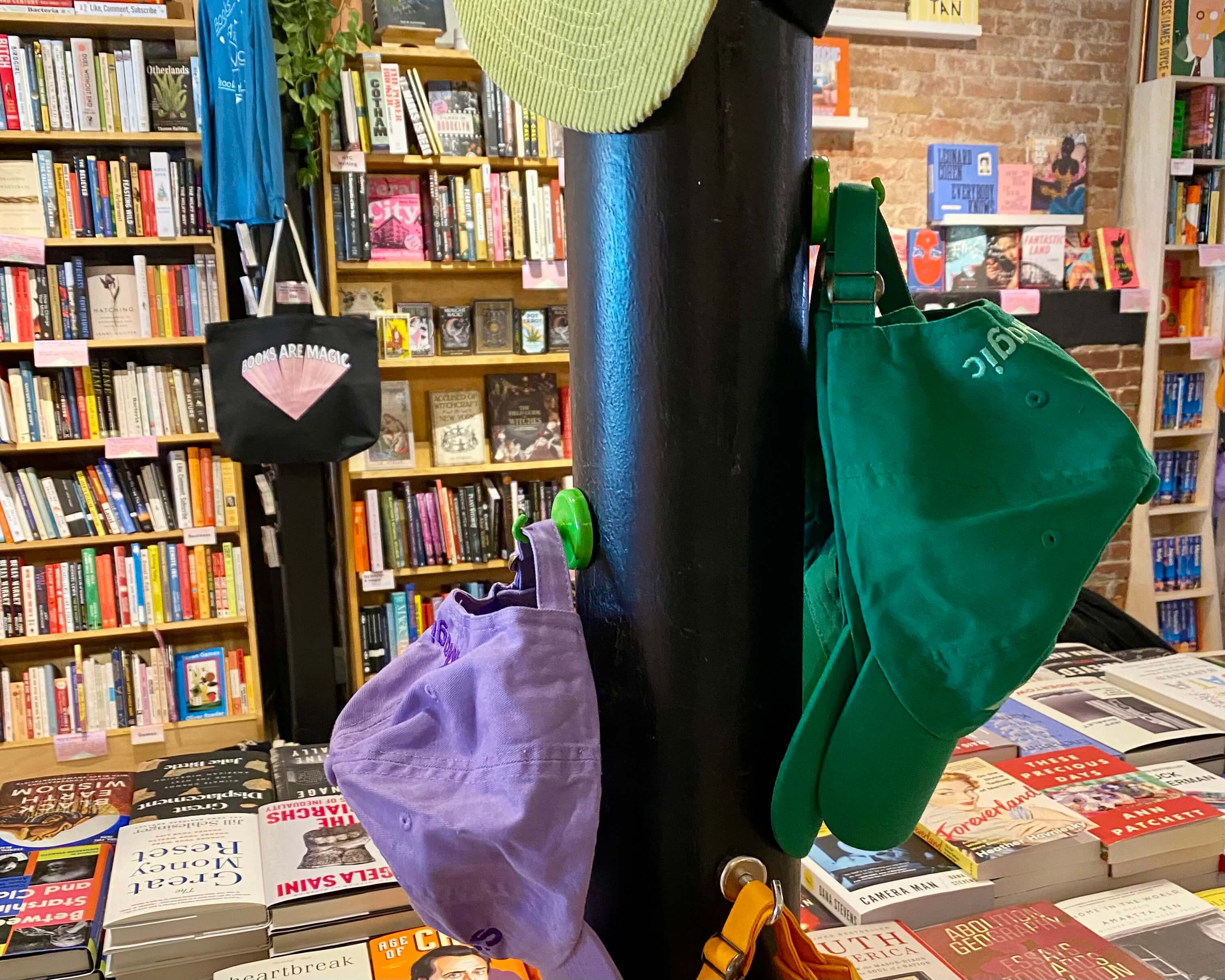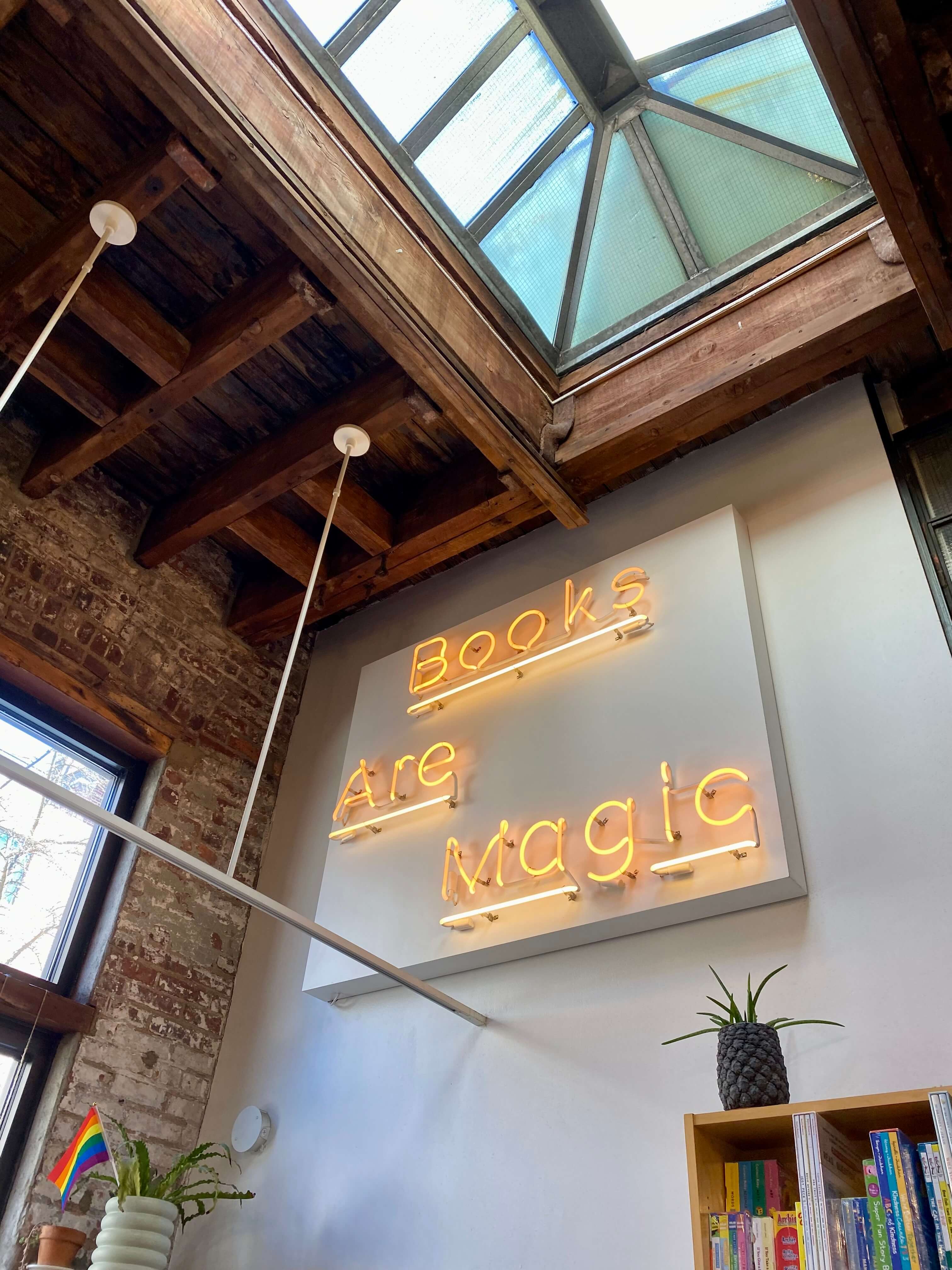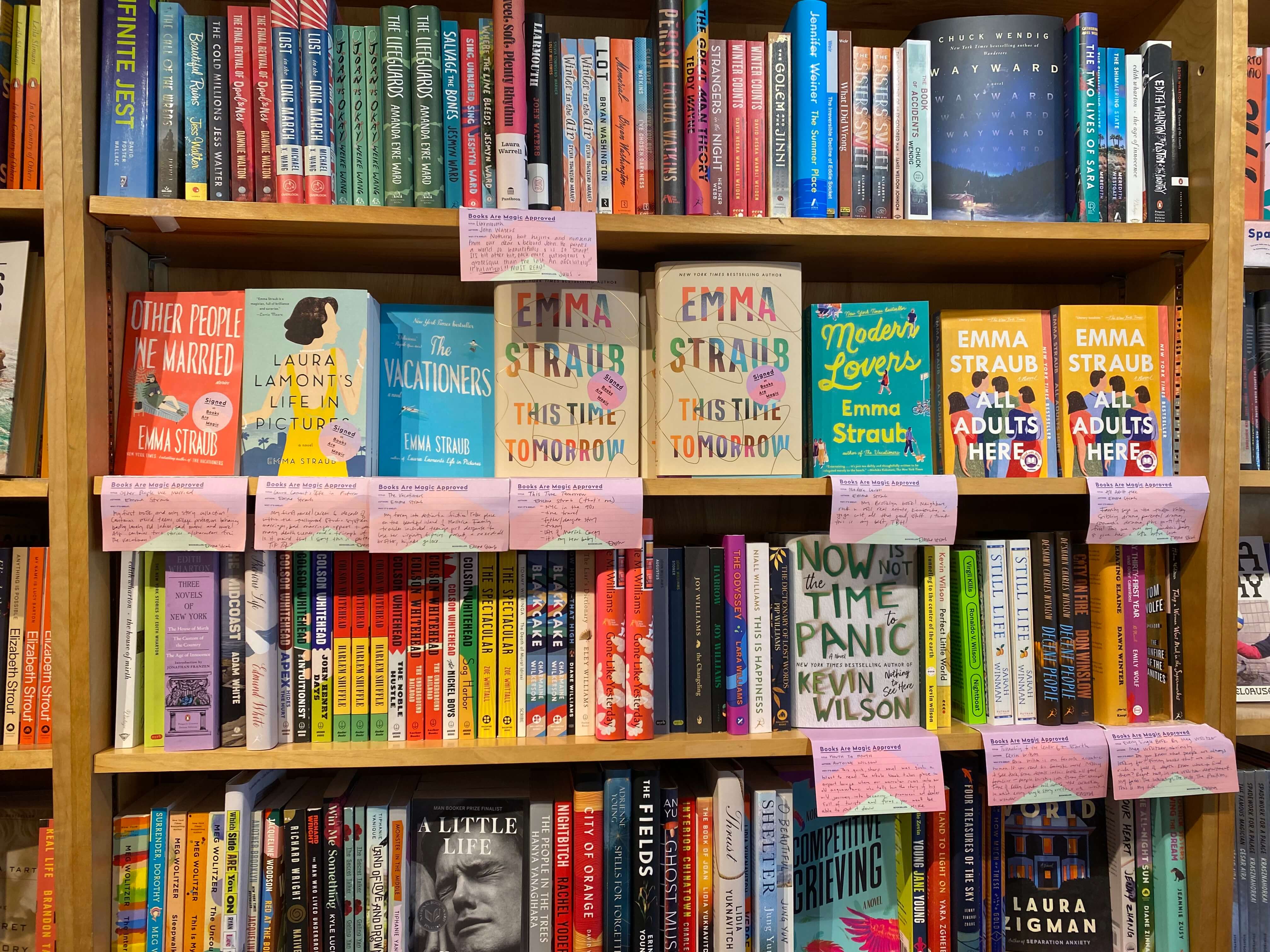An Interview with Bookseller and Novelist Emma Straub, by Michael Quinn
Once a bookseller at the legendary BookCourt, today Emma Straub has a bookstore of her own — with two locations. Six years ago, she and her husband Michael Fusco-Straub opened Books Are Magic on Smith Street in Cobble Hill. Last fall, they opened a second store on Montague Street in Brooklyn Heights.
Straub is also a New York Times-bestselling author, having written five novels, three picture books, and one short story collection. The apple doesn’t fall far from the tree. Her father Peter Straub, who died last September, was a bestselling writer of supernatural and horror novels, including “Ghost Story,” “Julia” and, with Stephen King, “The Talisman.”
Straub’s most recent novel, “This Time Tomorrow,” comes out in paperback this May. Its story focuses on a New Yorker named Alice Stern, who is witnessing the decline of her beloved father Leonard. On her fortieth birthday, Alice magically travels back to 1996. Suddenly she’s 16 again, with a new appreciation of her body, her best friend, but especially Leonard, who seems younger than she ever remembered him being. Given a chance to do things over, with implications for both of them, what will Alice do differently?
I met with Straub on an early spring morning at her bookstore’s Smith Street location, while the staff bustled about getting the store ready to open, to talk about “This Time Tomorrow,” her unexpected role as boss, and her favorite things about the neighborhood.
This interview has been edited for length and clarity.
The bookseller in her natural habitat (Smith Street location). Photo by Michael Quinn.
What’s the reaction to “This Time Tomorrow” been like so far?
This book is so personal, even though it’s about time travel. On my book tour, someone always came up to me sobbing. I’ve hugged so many people. I’ve had really meaningful moments with people who’ve lost someone. I didn’t expect that. It’s been lovely.
The heart of the book is Alice’s relationship with her father. Your father died a few months after the book came out. How has that changed your relationship to the book?
This book was always about my dad and me. And he loved that. It wasn’t something that I did sneakily. We talked a lot about it. If the book felt important to me before he died, now it feels, like, “Will I ever care about any book I write in my life ever again?” What’s crazy is that when other people open up this book, it’s interchangeable in some way with all my other novels, whereas to me, it feels like its own category—its own species!—because it’s so personal.
As a teenager, Alice feels uncertain about what she wants to do with her life. At 40, “she felt like everyone she knew had already become whatever they were going to become, and she was still waiting.” How has writing this made you reflect on where you are in your own life — what you thought it would be like versus how it’s turned out so far?
I was born in 1980, so I’m part of a group of people who recently turned 40. It’s not by accident or by choice that our lives look so different from our parents’. The landscape is really different.
I always knew I wanted to be a writer. I always knew I wanted to have children. I always knew I’d stay in New York. The bookstore is the biggest surprise. I started working at BookCourt in 2009, and I really wanted to live close to work, so we moved to Columbia Street. Six months later, they announced they were closing. We had just had a new baby. No matter how unhinged it sounds, opening a bookstore seemed easier than moving again. Maybe the bookstore is our midlife crisis—a shared midlife crisis with my husband! I certainly never thought I’d ever be the boss of anything.
At one point, Alice observes, “That was New York, watching every place you’d kissed or cried, every place you loved, turn into something else.” As a lifelong New Yorker, what has been the most painful change to the city?
The mall-ification. New York went from small stores to chain stores to empty stores. Obviously, I care about small businesses. The tiny stores you loved are gone. BookCourt was a very painful loss—for me. It was a good thing for them [owners Henry M. Zook and Mary B. Gannett]. They wanted to retire! But there have been so many losses. Gray’s Papaya on West Fourth. H&H Bagels on Broadway.
But that is how it works in New York. Now that I’ve run this business for the last six years, I understand that if someone operates something for 10, 20, 30 years, that is a success! Places don’t owe it to you to exist forever. Real serious labor goes into it every day.
What’s been the most promising change to the city?
I love Brooklyn Bridge Park. I use it every day, and it just gets better and more beautiful.
The original Books Are Magic, on Smith Street, features a now-iconic mural, by Jon Bocksel, where authors and readers are often photographed with their books. Photo by Michael Quinn.
Imagine someone’s never been to Books Are Magic. How would you describe its sensibility?
We are an energetic bookstore. We are vibrant. We are somewhat noisy. We are friendly, I hope. We are bright. We never wanted this to be a sleepy, dusty bookstore with one person sitting on a stool, reading a paperback. Our staff is incredible: so smart, so funny.
What I loved about BookCourt was that it was a bookstore. They sold books. It wasn’t about books and “gifts.” You couldn’t buy a candle. The one thing I knew we could do, the only thing we had experience in, was making t-shirts and tote bags, because my husband is a graphic designer by trade. We’d done that for our friends’ band, the Magnetic Fields.
All we want is to feel welcoming and be a safe, warm, happy space for our customers. That’s really number one. We want this to be a place where you can come every day, even just to look around. I’m really proud of how wonderful it is.
Hats, t-shirts and tote bags are the only things besides books you’re likely to find. Photo by Michael Quinn.
What differences are you noticing about the two stores and their clientele?
We’re still gathering data in Brooklyn Heights. We don’t yet have a real lock on what the neighborhood needs and wants. So far, it feels really different. We’re selling more mystery there, more history, more nonfiction, whereas the crowd on Smith is into young fiction. Carroll Gardens has a big French-speaking population, so we had to find out how to source French books. There are always different challenges to figure out. But it’s fun.
What are your thoughts about the new Barnes & Noble on Atlantic Avenue?
When I worked at BookCourt, Barnes & Noble opened on Court Street. I remember how threatening that felt, how scared I was for BookCourt. The world is so different now. I no longer see them as the enemy. They are our ally. They serve their purpose. You couldn’t get an SAT prep book at Books Are Magic unless you special-ordered it. My 9-year-old loves manga; they have a much bigger selection than we do. I want them to thrive and succeed. Then again, if it were an Amazon store we were talking about, I’d be murderous.
A neon sign illuminates the Smith Street location. Both stores feature exposed wood, clean white walls and natural light. Photo by Michael Quinn.
Someone’s new to the neighborhood. What places would you put on their “must-see” list?
Go to Brooklyn Bridge Park. Have dinner at Popina on Columbia Street. It’s very close to my house, but that’s not why I love it. They make fresh Italian pasta. I’d travel for it. Or have the cavatelli with sausage at Frankie’s. Go to Sahadi’s, my favorite place in the world—then cross Atlantic Avenue and have a drink at Elsa’s.
My children love what we call the Lollipop Diner [the Cobble Hill Coffee Shop, where they give out lollipops at the end of a meal.] There are so many pizzas, and we have so many arguments over preferences. My 9-year-old likes a square slice; my 7-year-old likes a triangle.
Ride a bike to Red Hook, have key lime pie at Steve’s, or some barbeque at Hometown. Do some people-watching on a pier. My son wanted to learn how to fish, so we walked down there, and several men were like, “Hey, I’ll show you!”
What surprises you most about living here?
My favorite part of living here is what makes my family crazy. I can’t walk down the street without saying hello to everyone. [From behind a bookcase, Straub’s husband Mike jokes, “It makes it hard to walk down the street and have a conversation!”] I see the same people. My old teachers, people I went to school with. I love that my dentist is also my neighbor. It’s my community. I don’t know if I could run a bookstore where I didn’t live. I love when I’m out somewhere and run into a friend who, when she introduces me to someone new, says, “Do you know who this is? She owns the bookstore.” I get to be that. What’s dreamier than that?
What’s your favorite part of running a bookstore?
My booksellers. And small children. When I’m in here and get to hang out with a two-year-old for five minutes. And puppies!
What’s your least favorite part?
Because I have more than one job, I can’t devote myself 100%, 100% of the time. Right now, there are two bookstores, so even less is possible. I often feel like I’m not here enough, although the store is very well-cared for.
Book you stock that always sells?
All About Love, by bell hooks, sold hundreds, hundreds, hundreds. Alison Roman has a new cookbook out, and we’ve sold thousands of her books. We also sell many of my novels. When I leaf through my earlier books to sign them, I think, “Who wrote this?” They came from such a different brain—she is a stranger to me.
A selection of Straub’s autographed novels. The pink cards dotting the blond wood shelves throughout the store share the booksellers’ many recommendations. Photo by Michael Quinn.
Book you insist on stocking that is a bit slower to fly off the shelves?
We have tons of those! We carry pretty much the entire catalog of everything ever written by Meg Wolitzer and Lorrie Moore, just because I love them the most. Any bookseller could name titles that are important to them. That’s what makes an independent bookstore so great.
A book that almost everyone would be happy to receive?
Right now, “Tomorrow, and Tomorrow, and Tomorrow,” by Gabrielle Zevin. Fully half the staff read it and loved it. It’s an incredible story. “Crying in H Mart,” by Michelle Zauner, we sold thousands. It hasn’t slowed down for us since the minute it came out.
I mean, Books Are Magic is not the whole world. When a book does well here, it doesn’t necessarily mean it’s crossed over into the public consciousness. We get behind the books we love and they’re big hits for us here, even if some of them aren’t national bestsellers.
My relationship with writers has changed so much since we opened the store. It’s not competitive. It’s cooperative in this new way, where I can say, “Come in, and we can do something together.” We work together in support of their success.
Top photo: A red bench outside the Montague Street location of Books Are Magic is a popular spot for reading – and for people-watching. Photo by Michael Quinn.

